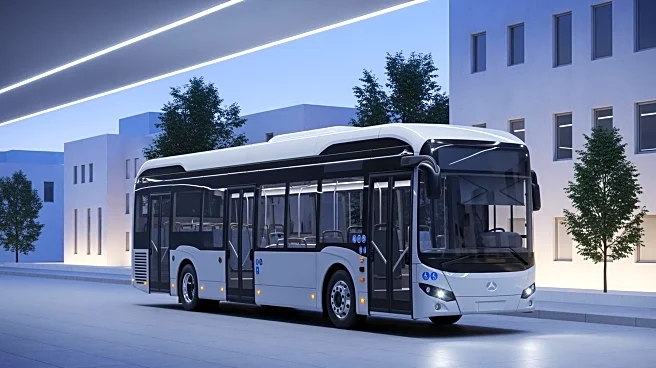What's Happening?
Denmark and Norway are investigating security vulnerabilities in their fleets of Chinese-made electric buses, specifically those manufactured by Yutong. These buses, which can receive software updates
remotely, have raised concerns about potential remote deactivation by the manufacturer or hackers. The issue was first identified by Norwegian operator Ruter, prompting Danish operator Movia to examine their fleet of 262 Yutong buses. The investigation highlights broader concerns about dependency on Chinese technology and its implications for national security.
Why It's Important?
The security concerns surrounding Chinese electric buses underscore the growing apprehension in Europe regarding reliance on Chinese technology. As nations increasingly depend on foreign technology for critical infrastructure, vulnerabilities can pose significant risks to national security. The situation reflects broader geopolitical tensions between Western countries and China, impacting trade relations and technological collaborations. Addressing these concerns is crucial for ensuring the security and reliability of public transportation systems, which are vital for urban mobility and economic stability.
What's Next?
In response to these security concerns, Denmark and Norway are implementing stricter cybersecurity measures, including firewalls and collaboration with authorities to establish clear cybersecurity requirements. These steps aim to mitigate risks and enhance the security of public transportation systems. The situation may prompt other European countries to reassess their reliance on Chinese technology and consider similar measures. Additionally, ongoing discussions between European governments and Chinese manufacturers could influence future trade agreements and technological partnerships.
Beyond the Headlines
The investigation into Chinese electric buses raises ethical questions about the balance between technological advancement and security. As nations strive for innovation, ensuring the protection of critical infrastructure becomes paramount. The situation also highlights the importance of transparency and trust in international trade relations, as countries navigate the complexities of global supply chains and technological dependencies.












